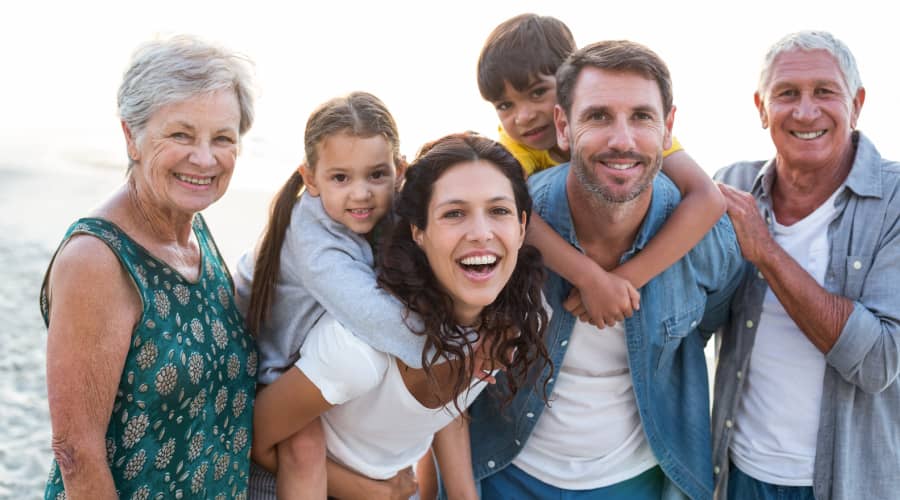
If you are faced with the loss of a loved one, you may be asking questions like “How much does a cremation cost?” or “Where can I find low-cost cremation near me in Florida?” This article will answer these questions and provide some options to consider for state, county, federal, charitable, and nonprofit assistance.
State and County Assistance
State assistance for funeral costs in Florida is extremely limited, generally reserved only for indigent deaths. State law requires counties to bury unclaimed or indigent bodies at government expense to ensure bodies are disposed of properly for public health considerations.
Eligibility is based on federal poverty guidelines. County officials will review income, assets, and insurance to establish eligibility. In most counties, you will want to contact the Office of Human Services or the county health department to discuss options. Each county operates its own program.
However, there are other options for families seeking “low-cost cremation near me in Florida.”
Federal Resources
There is federal assistance available for eligible families seeking “low-cost cremation near me.” Here are a few available resources:
- The Federal Emergency Management Agency (FEMA) provides burial assistance if someone dies during a natural disaster, such as a hurricane or power outage.
- The Department of Veterans Affairs (VA) offers various levels of assistance. For example, if a death is service-related, the VA can provide up to $2,000. If a veteran’s death was not related to military service, the VA will still provide different levels of support. Veterans on active duty or serving a federal prison sentence are not eligible.
- The Social Security Administration (SSA) provides a one-time death benefit of $255 to the spouse or children of someone who has died, to help offset costs. There may also be survivor benefits available if the deceased was of retirement age.
Charitable Organizations
There are several charitable organizations and religious establishments that provide assistance to families with financial needs.
Funeral Consumers Alliance is a nonprofit organization and may be able to help you find assistance, serving several areas:
- Funeral Consumers Alliance of Southeast Florida
Broward, Miami-Dade, Indian River, Martin, Palm Beach, and St. Lucie counties - Funeral Consumers Alliance of Suncoast Florida
Sarasota and Manatee counties - Funeral Consumers Alliance of Tampa Bay
Hillsborough, Pinellas, Pasco, and Hernando Counties
The TEARS Foundation offers financial help and bereavement care for families who have lost a child in Florida, providing funds to assist with burial or cremation.
Direct Cremation
If you search online for “How much does a cremation cost in Florida?”, you will find several different sources. Generally, a cremation in Florida can cost between $1,500 and $2,000 depending on location, although you can find some funeral homes offering lower prices. For example, the cost of direct cremation in Florida can range from about $700 to $1,200 without any specific eligibility requirements.
To explore direct cremation, check with local funeral homes. County health departments may also be able to provide funeral homes or crematory locations that offer direct cremation to reduce costs.
Whole Body Donation: No-Cost Cremations
Another option for families is whole body donation. For example, United Tissue Network accepts most bodies, paying 100% of the costs for transportation, storage, and cremation. Bodies are used for scientific research, medical training, and testing treatments and drug therapies. Besides receiving no-cost cremations, families can be comforted by the knowledge that a loved one’s passing is helping to advance medical science to help others.
UTN handles arrangements with hospice centers or funeral homes, ensures bodies are placed with reputable and ethical sources, and manages the cremation and return of the remains to families.
United Tissue Network accepts body donations across a wider range of ages, weights, and medical conditions. As Florida’s only nonprofit agency accepting whole body donations, UTN accepts more donations than other programs. In fact, UTN accepts about 97% of the donations made. Unless the individual suffers from a communicable disease like HIV, most whole-body donations are accepted. There is no upper limit on age, and individuals with various medical conditions are accepted into the program. UTN will review medical history and conduct testing to ensure safety when placing donations.
Donations are screened to ensure they are safe for scientists and researchers. The identity of donated bodies is kept confidential.
Becoming an organ donor as well as a whole-body donor is also possible. Viable organs can be removed for transplantation before the body is used for medical research.
To learn more about whole body donations in Florida, contact United Tissue Network today at 877-738-6111 or visit our website.
